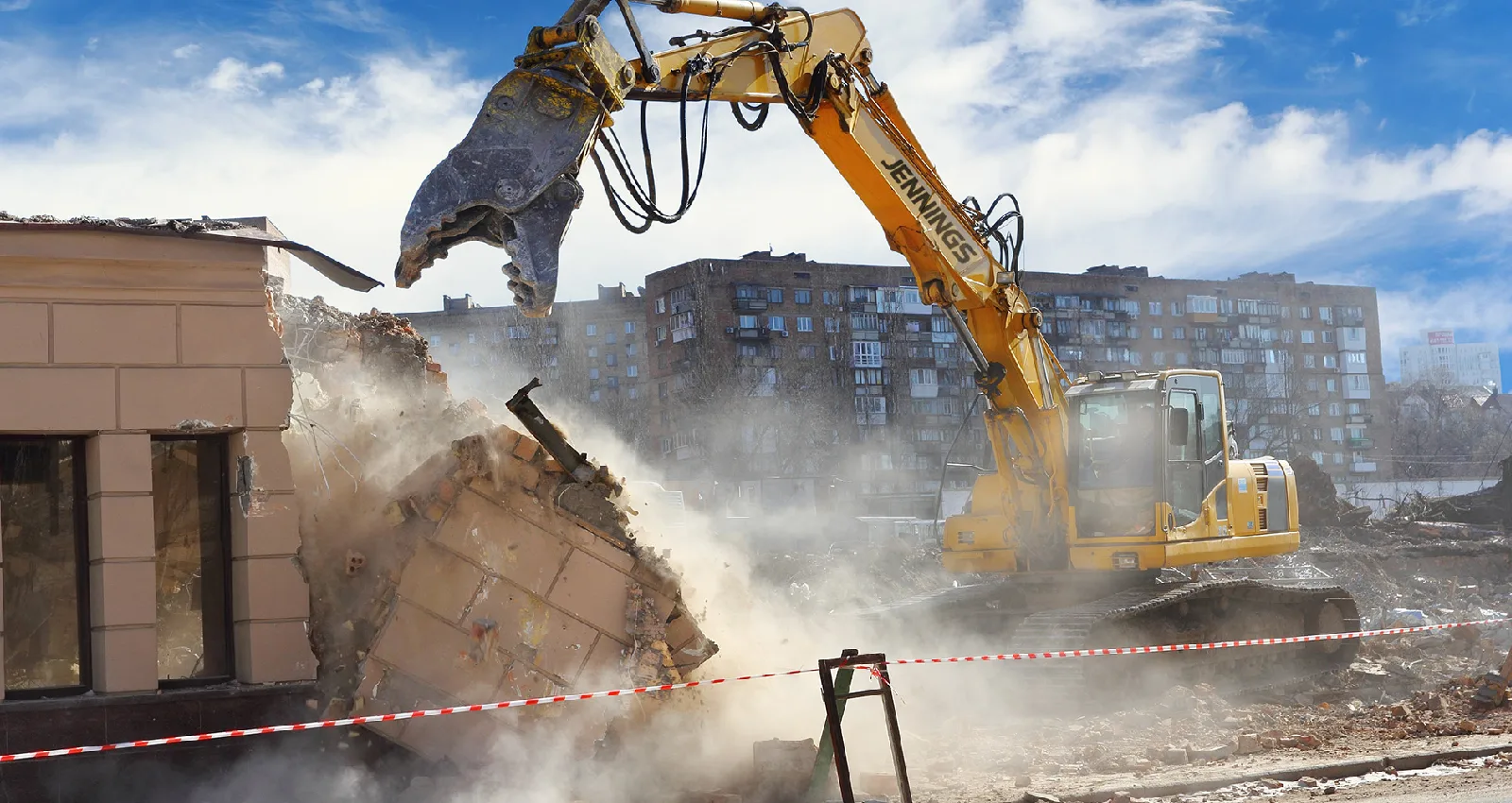Demolition projects are often associated with environmental concerns due to the waste and pollution they generate. However, by adopting an eco-friendly demolition method, it’s possible to minimize the impact of demolition on the environment. In this guide, we’ll explore how to deconstruct responsibly, focusing on methods and techniques that prioritize sustainability and resource conservation.

1. Planning and Preparation
Before beginning any demolition project, thorough planning and preparation are essential. Here’s what you need to consider:
- Conduct a thorough assessment of the structure to be demolished, identifying any hazardous materials such as asbestos or lead that require special handling.
- Develop a demolition plan that outlines the sequence of activities, waste management strategies, and safety measures to be implemented.
- Obtain necessary permits and approvals from local authorities before commencing work to ensure compliance with regulations.
2. Salvage and Recycling
Maximizing the reuse and recycling of materials is key to eco-friendly demolition methods. Consider the following strategies:
- Salvage valuable materials such as lumber, fixtures, and appliances for reuse in future construction projects or donation to charitable organizations.
- Sort and segregate demolition debris to facilitate recycling. Commonly recyclable materials include concrete, metal, wood, and asphalt.
- Partner with local recycling facilities or waste management companies to ensure that recyclable materials are properly processed and diverted from landfills.
3. Deconstruction Techniques
Rather than resorting to conventional demolition methods that involve heavy machinery and excessive waste, explore alternative deconstruction techniques:
- Selective Demolition: Target specific areas or components of the structure for removal, preserving intact portions that can be repurposed or recycled.
- Manual Demolition: Utilize hand tools and labor-intensive methods to dismantle structures in a controlled manner, minimizing noise, dust, and environmental impact.
- Deconstruction by Hand: Deconstructing a building by hand allows for the careful removal of materials, reducing the likelihood of damage and maximizing salvage opportunities.
4. Waste Management and Disposal
Proper waste management is crucial for eco-friendly demolition. Implement the following practices:
- Utilize on-site waste segregation stations to separate recyclable materials from non-recyclable waste.
- Partner with licensed waste management companies to transport and dispose of hazardous materials safely and responsibly.
- Minimize landfill disposal by prioritizing recycling and reuse whenever possible, diverting materials from the waste stream, and conserving natural resources.
5. Environmental Impact Assessment
Conducting an environmental impact assessment can help identify potential risks and mitigation measures associated with demolition activities:
- Assess the environmental footprint of the demolition project, considering factors such as air and water quality, soil contamination, and habitat disruption.
- Implement measures to minimize pollution and mitigate environmental impacts, such as dust suppression techniques, erosion control measures, and habitat restoration efforts.
- Monitor environmental indicators throughout the demolition process to ensure compliance with regulatory requirements and minimize negative impacts on ecosystems and communities.
6. Use of Reclaimed Materials in Construction
Using reclaimed materials in construction can significantly reduce environmental impact and promote sustainable demolition practices. Consider salvaging valuable materials such as lumber, fixtures, and appliances for reuse in future construction projects or donation to charitable organizations.
By giving these materials a second life, you not only divert them from landfills but also minimize the need for new resource extraction. Additionally, utilizing reclaimed materials adds unique character and history to new construction projects, contributing to a more environmentally conscious and socially responsible approach to demolition and construction.
7. Community Engagement
Engaging with the local community throughout the demolition process fosters transparency, builds trust, and promotes sustainable practices. Seek input from residents, stakeholders, and environmental organizations to address concerns, gather feedback, and collaborate on solutions that benefit the community.
8. Education and Outreach
Educating stakeholders about the benefits of eco-friendly demolition and deconstruction techniques is essential for promoting the widespread adoption of sustainable practices. Host workshops, seminars, or informational sessions to raise awareness about the environmental impact of traditional demolition methods and highlight the advantages of responsible deconstruction.
9. Long-Term Planning
Incorporating sustainability principles into long-term planning processes helps ensure that eco-friendly demolition practices become standard practice in the construction industry. Advocate for the inclusion of deconstruction requirements in building codes, zoning regulations, and development policies to encourage developers and contractors to prioritize environmental stewardship in their projects.
Conclusion
By following the principles of eco-friendly demolition, it’s possible to transform a traditionally wasteful and environmentally harmful process into one that promotes sustainability and resource conservation. From careful planning and salvaging materials to employing alternative deconstruction techniques and responsible waste management practices, every step taken towards eco-friendly demolition contributes to a healthier planet for future generations.
Are you ready to transform your next demolition project into a model of sustainability? Our team of experts at Robert Demolition Services is ready to help. Call us today at +1 (626) 598-0657 or email pantera091523@gmail.com to learn how our eco-friendly demolition and deconstruction services can minimize environmental impact while maximizing material reuse for your project.
Want to discuss how adopting greener demolition practices can benefit your business or development goals? Contact us to book a free consultation. One of our representatives will walk through various deconstruction techniques, waste management strategies, and community engagement best practices that align with your needs and vision.
FAQs
Q: What are the benefits of deconstructing buildings instead of demolishing them?
Deconstructing buildings allows for the salvage and reuse of valuable materials, reduces waste sent to landfills, and minimizes environmental impact compared to traditional demolition methods.
Q: How can community engagement contribute to eco-friendly demolition projects?
Engaging with the local community fosters transparency, builds trust, and promotes sustainable practices. Community input can help address concerns, gather feedback, and collaborate on solutions that benefit everyone involved.
Q: What role do education and outreach play in promoting eco-friendly demolition practices?
Educating stakeholders about the benefits of eco-friendly demolition raises awareness about the environmental impact of traditional methods and highlights the advantages of responsible deconstruction. Outreach efforts help promote widespread adoption of sustainable practices in the construction industry.
